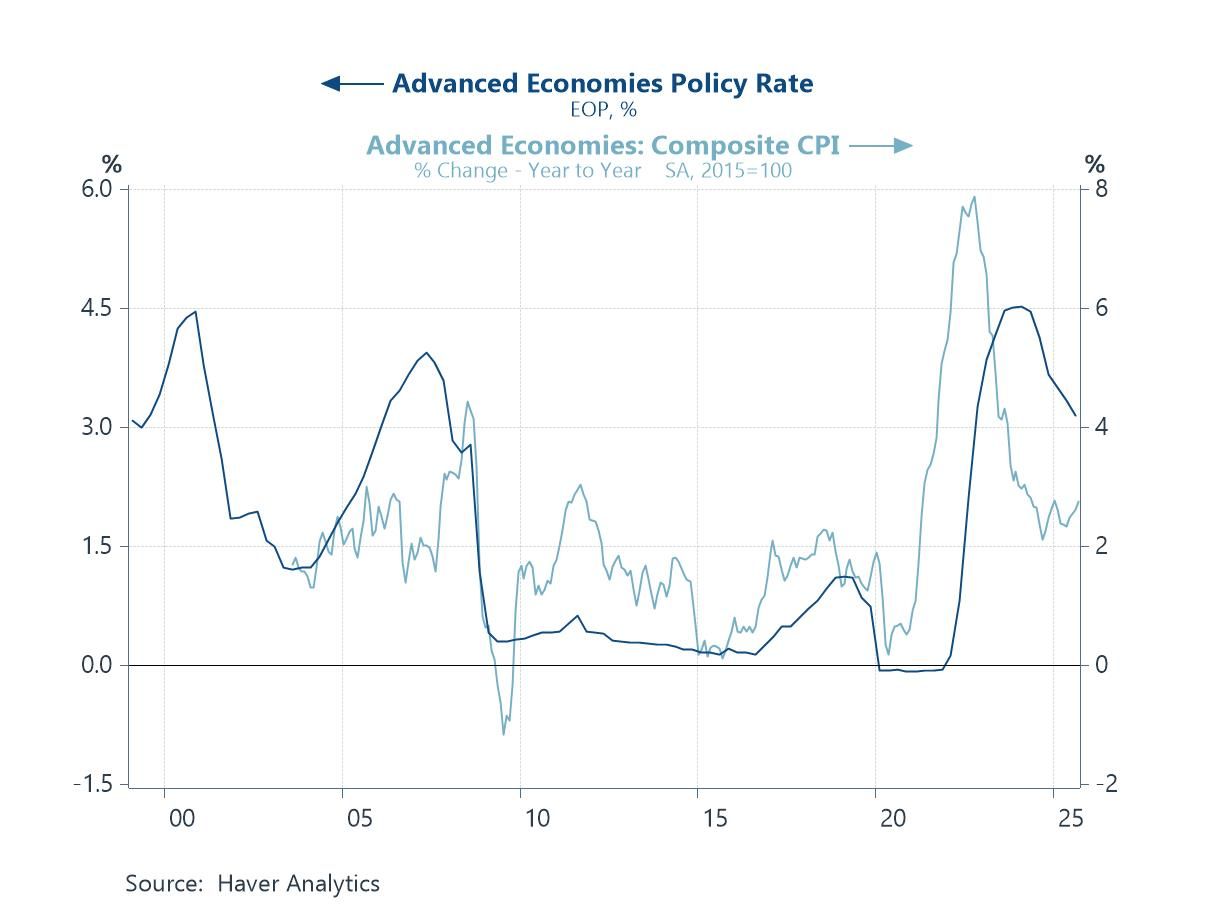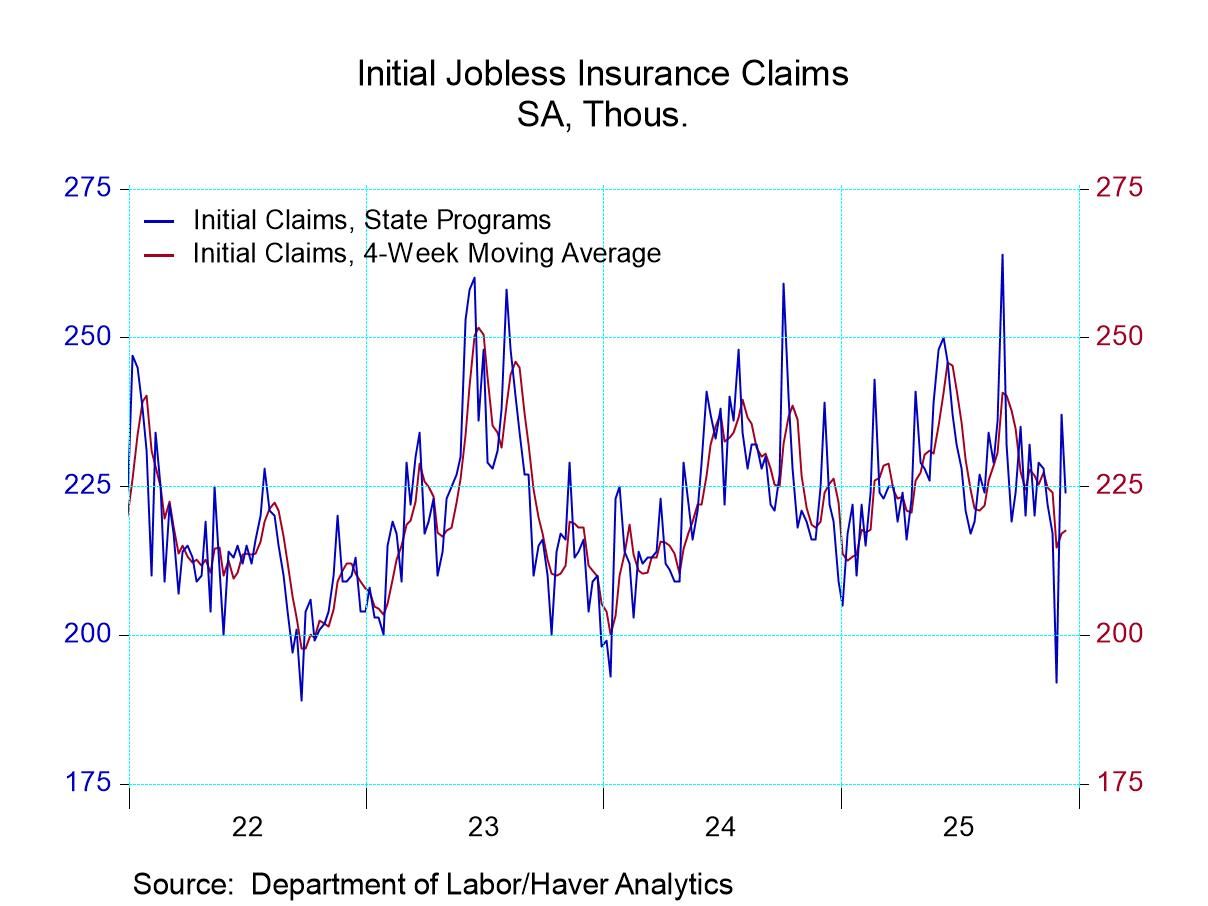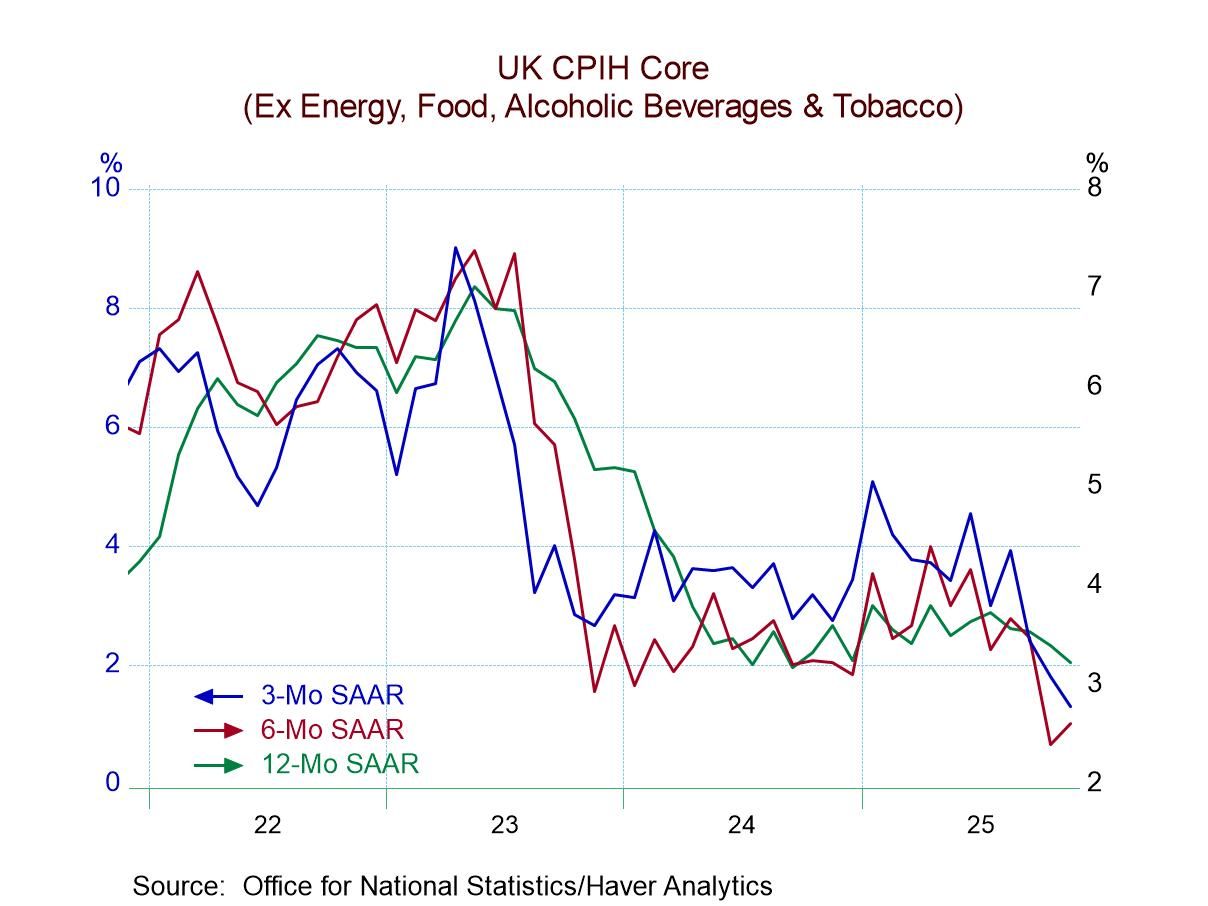 Global| Jan 18 2006
Global| Jan 18 2006CPI Fell Again, Unexpectedly; 2005 Strongest Since 2000
by:Tom Moeller
|in:Economy in Brief
Summary
The consumer price index (CPI-U) fell 0.1% last month on the heels of the 0.6% drop during November. Consensus expectations had been for a 0.2% rise. Despite the latest declines, the 2005 average rise in prices of 3.4% was the [...]
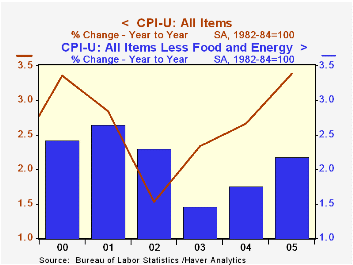
The consumer price index (CPI-U) fell 0.1% last month on the heels of the 0.6% drop during November. Consensus expectations had been for a 0.2% rise. Despite the latest declines, the 2005 average rise in prices of 3.4% was the strongest since 2000 while the December to December rise of 3.4% equaled the 2004 increase.
Energy prices posted a surprising 2.2% decline last month due to widespread m/m declines in fuel oil (+24.0% y/y) and natural gas (+30.1% y/y) prices. Gasoline prices also fell for the third straight month (+16.1% y/y) to an average $2.19 but have wince risen to an average $2.30 in January.
Food prices likewise were under control and rose just 0.2%, the slimmest increase since August.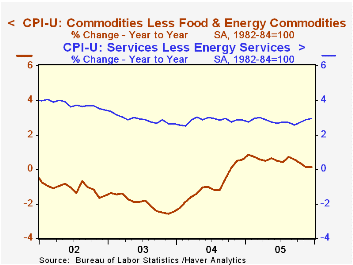
Prices less food & energy again rose 0.2%, the third consecutive such increase and matched Consensus expectations. The year to year gain in core prices core prices accelerated during the last two years from the low of 1.5% during 2003 as core goods prices inflated rather than fell. In December, goods prices less food & energy were unchanged and the 2005 increase of 0.5% was the strongest since 2000.
A 0.3% decline in apparel prices (-1.1% y/y) was accompanied by lower prices for new & used vehicles (+0.4% y/y). These declines were offset by higher furniture & bedding prices (0.6% y/y) and higher appliance prices (3.0% y/y). Medical care commodity prices rose 0.2% (3.7% y/y) while educational books & supplies also rose 0.4% (5.1% y/y).
Core services prices increased 0.3% but the full year gain of 2.8% just equaled 2004. The increase in medical care prices faded late in the year (4.4% y/y) and but school tuition & fees posted a strong 6.2% December to December spike. The increase in shelter prices was steady at (2.5% y/y).
The chained CPI which adjusts for shifts in the mix of consumer purchases fell for the second consecutive month though the full year gain of 2.8% was the strongest since the series inception. Less food & energy prices also fell m/m but the annual increase of 1.8% was the strongest since 2002.
Productivity and Economic Outlook, today's speech by Fed Governor Susan Schmidt Bies can be found here.
| Consumer Price Index | Dec | Nov | Y/Y | 2005 | 2004 | 2003 |
|---|---|---|---|---|---|---|
| Total | -0.1% | -0.6% | 3.4% | 3.4% | 2.7% | 2.3% |
| Total less Food & Energy | 0.2% | 0.2% | 2.2% | 2.2% | 1.8% | 1.5% |
| Goods less Food & Energy | 0.0% | -0.1% | 0.1% | 0.5% | -0.9% | -2.0% |
| Services less Energy | 0.3% | 0.4% | 3.0% | 2.8% | 2.8% | 2.9% |
| Energy | -2.2% | -8.0% | 17.0% | 16.9% | 10.9% | 12.2% |
| Food | 0.2% | 0.3% | 2.4% | 2.5% | 3.4% | 2.1% |
| Chained CPI: Total (NSA) | -0.3% | -0.5% | 2.8% | 2.8% | 2.3% | 2.0% |
| Total less Food & Energy | -0.2% | 0.0% | 1.7% | 1.8% | 1.5% | 1.1% |
Tom Moeller
AuthorMore in Author Profile »Prior to joining Haver Analytics in 2000, Mr. Moeller worked as the Economist at Chancellor Capital Management from 1985 to 1999. There, he developed comprehensive economic forecasts and interpreted economic data for equity and fixed income portfolio managers. Also at Chancellor, Mr. Moeller worked as an equity analyst and was responsible for researching and rating companies in the economically sensitive automobile and housing industries for investment in Chancellor’s equity portfolio. Prior to joining Chancellor, Mr. Moeller was an Economist at Citibank from 1979 to 1984. He also analyzed pricing behavior in the metals industry for the Council on Wage and Price Stability in Washington, D.C. In 1999, Mr. Moeller received the award for most accurate forecast from the Forecasters' Club of New York. From 1990 to 1992 he was President of the New York Association for Business Economists. Mr. Moeller earned an M.B.A. in Finance from Fordham University, where he graduated in 1987. He holds a Bachelor of Arts in Economics from George Washington University.



